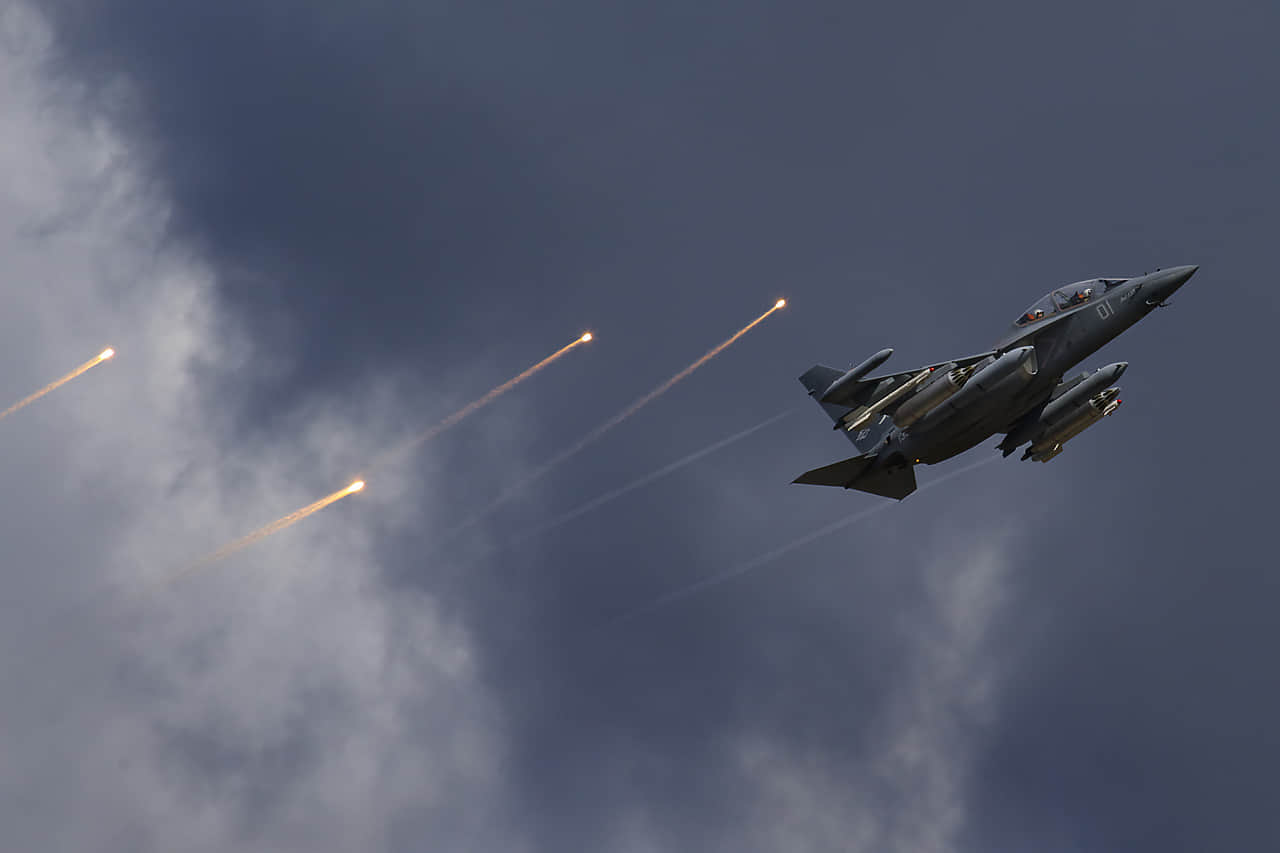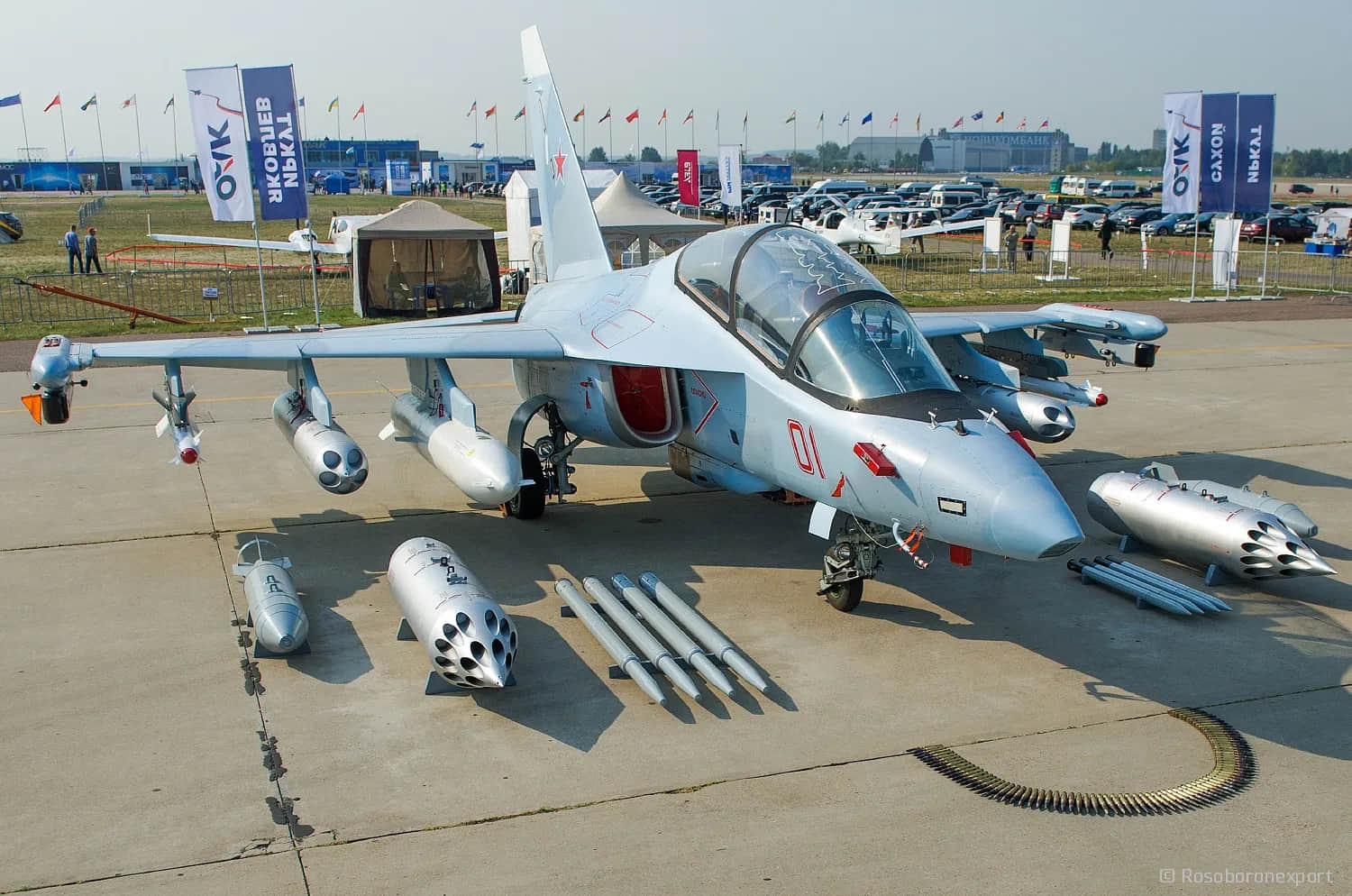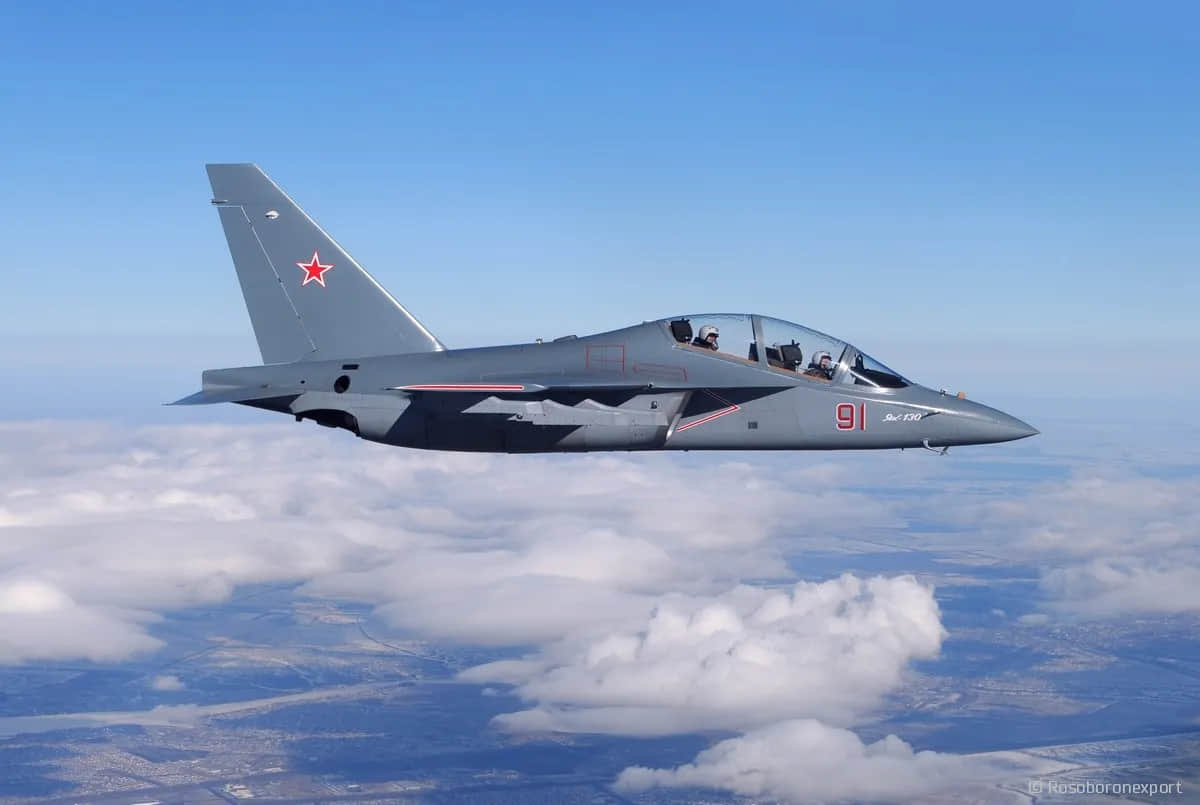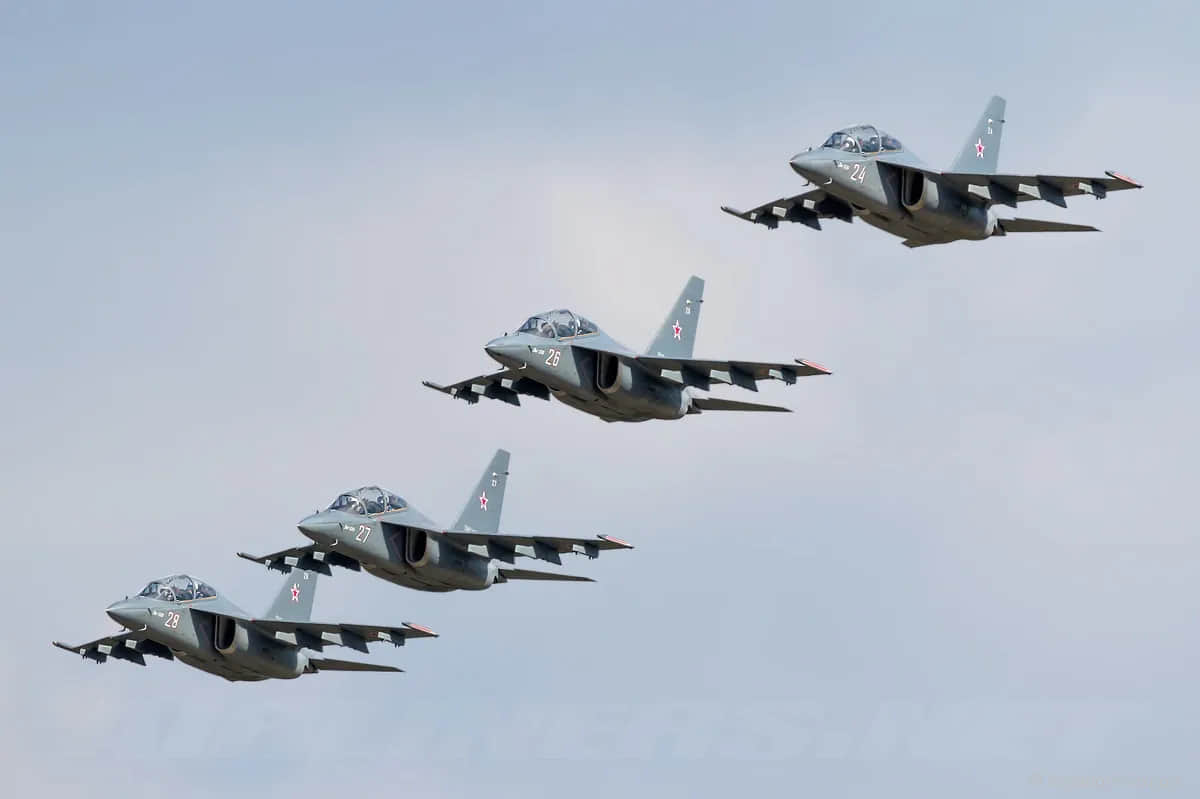The Yakovlev Yak-130 (NATO reporting name: Mittene) is a supersonic twin-seat advanced jet trainer and light combat aircraft developed by Yakovlev and Aeromacchi as the “Yak/AEM-130.” It has also been marketed as a potential light attack aircraft. Development of the aircraft began in 1991, and the maiden flight was conducted on April 25, 1996. In 2002, it won a Russian government tender for training aircraft, and in 2010, the aircraft entered service with the Russian Air Force.
As an advanced training aircraft, the Yak-130 is able to replicate the characteristics of several 4+ generation fighters, as well as the fifth-generation Sukhoi Su-57. It can also perform light-attack and reconnaissance duties, carrying a combat load of 3,000 kg (6,600 lb).

The Yakovlev Yak-130 is an advanced pilot trainer aircraft, able to replicate the characteristics of Russian 4th and 5th generation fighters. This is possible through the use of open architecture avionics compliant with a 1553 Data Bus, a full digital glass cockpit, four-channel digital Fly-By-Wire System (FBWS), and Instructor controlled and variable FBWS handling characteristics and embedded simulation. The type also has a Head-Up Display (HUD) and a Helmet-Mounted-Sighting-System (HMSS) with a double GPS/GLONASS receiver updating and Inertial Reference System (IRS) for highly accurate navigation and precision targeting. The developer estimates that the plane can cover up to 80% of the entire pilot training program.

The combat training suite on the Yakovlev Yak-130 includes simulated and real firing systems with air-to-air and air-to-surface missiles, bomb dropping, gun firing, and on-board self-protection systems. In addition to its training role, the aircraft is capable of fulfilling Light Attack and Reconnaissance duties. It can carry a combat load of 3,000 kilometers (6,600 pounds), consisting of various guided and unguided weapons, auxiliary fuel tanks, and electronic pods. During a test phase that ended in December 2009, the plane was tested with “all airborne weapons with a weight of up to 500 kg that are in service in the Russian Air Force.” The Yak-130 has nine hardpoints: two wingtip, six under-wing, and one under-fuselage.

The maximum internal fuel capacity is 1,700 kg (3,700 lb). With two external combat fuel tanks, the figure increases to 2,600 kg (5,700 lb). The maximum true airspeed is Mach 0.93 (572 knots), service ceiling is 12,500 meters (41,000 feet), and load factors are from -3 to +9 g. Tactical Take-Off Speed and Distance in a “clean” configuration are 209 km/h (113 knots) and 550 meters (1,800 feet), respectively. Landing figures with weapons are 191 km/h (103 knots) and 750 meters (2,460 feet), respectively. The crosswind limit is 56 km/h (30 knots). The aircraft’s twin engines are mounted under extended wing roots, which reach as far forward as the windshield. Two Ivchenko Progress AI-222-25 Full Authority Digital Engine Control (FADEC) produce a combined total of 49 kilonewtons (11,000 pounds-force) of thrust.
